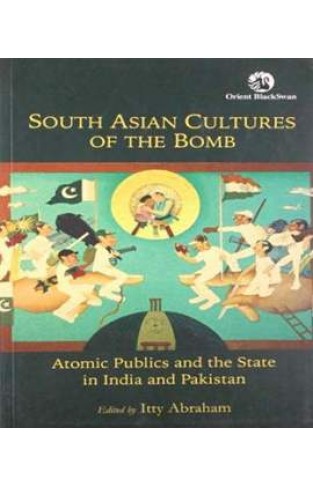South Asian Cultures of the Bomb: Atomic Publics and the State in India and Pakistan
South Asian Cultures of the Bomb: Atomic Publics and the State in India and Pakistan
By:
-
Rs 397.50
- Rs 795.00
- Ex Tax :Rs 397.50
- Price in loyalty points :755
You saved Rs 397.50.
Due to constant currency fluctuation, prices are subject to change with or without notice.
India and Pakistan became independent nations early in the world’s atomic age. Nuclear power and nuclear weapons have been present from the beginning as key features of nationalism and the public sphere in each country. Yet the relationship between nuclear arms and civil society in South Asia is seldom taken into account in conventional security studies. What explains the fascination of Indian and Pakistani elites with nuclear weapons? What accounts for the absence of a mass antinuclear movement in either country? What do people outside New Delhi and Islamabad think of nuclear weapons? In these original and provocative essays, scholars from India, Pakistan, the U.S., U.K., and Europe argue that if we are to find answers to these important questions it is crucial to understand nuclear power in South Asia beyond the narrow confines of strategic studies. The contributors stress the political and ideological components of national drives to possess and test nuclear weapons, incorporating approaches from history, political theory, sociology, anthropology, media studies, art history and postcolonial studies. A distinctive feature of the volume is the attempt to provide equal coverage for comparable issues in both India and Pakistan, resulting in a genuine intellectual dialogue across this contested boundary.



